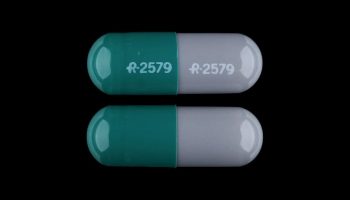Detox is a key first step in the recovery journey for people struggling with addiction.
It can be an overwhelming experience, but understanding the process of detoxing before entering into rehab can help ease some of those anxieties. Here’s what to know about detox and how it works to prepare yourself for your journey to sobriety:
What Is Detox?
Detox is the process of removing drugs or alcohol from an individual’s system. It allows the body to return to a state of balance and health, preparing the individual for therapy and recovery.
Most often, detox is done in a controlled environment like a residential rehab center or hospital, where medical professionals can closely monitor vital signs and provide necessary medications as needed.
During detox, a person may experience uncomfortable or intense withdrawal symptoms as the body adjusts to no longer having substances in the system. These symptoms can range from mild to severe and may include nausea, vomiting, insomnia, muscle aches, tremors, anxiety, and depression. An addiction specialist can help individuals manage and cope with these symptoms, helping to keep them safe and comfortable as their body recovers.
What Are The Types Of Rehab Detox Programs?

A detox program depends on the individual’s needs and the type of substance involved. The two main programs available are:
A. Inpatient Programs
Living in a residential treatment center during detox allows individuals access to 24-hour medical and therapeutic care. Inpatient programs are typically recommended for those with severe addictions or dual diagnoses.
An inpatient program is often more intensive and provides a safe, supportive environment to aid detox. It also offers access to medical professionals and therapists who can help with any physical or emotional issues that may arise during detox.
B. Outpatient Programs
Outpatient programs are similar to visiting a doctor’s office or clinic for regular checkups. These programs are often recommended for those with less severe addictions. The individual will still receive medical and therapeutic care but will not be living at the facility.
Outpatient programs provide flexibility, which may benefit those with busy schedules or work commitments. They are also less expensive than an inpatient program. The downside of an outpatient program is that it may not be as structured or intense as an inpatient program, making it more difficult to maintain sobriety.
How Does the Detox Process Work?

1. Medical Evaluation
During the initial evaluation, a doctor or addiction specialist will assess the individual’s physical and mental health. That includes reviewing the individual’s medical history, any previous attempts at recovery, and co-occurring disorders. The doctor will also conduct a physical exam to determine the severity of the addiction and any potential health risks. This information helps the medical team create a tailored detox plan that meets the patient’s needs.
2. Detoxification
Once the patient is medically cleared, they begin a supervised detox program that involves gradually tapering off substances. This process may take anywhere from a few days to several weeks, depending on the substance used and the addiction’s severity. As the body adjusts to being without substances, individuals may experience withdrawal symptoms. These symptoms are temporary and will subside as the detox progresses.
3. Stabilization
Withdrawal symptoms can sometimes be severe and uncomfortable. They may include insomnia, nausea, vomiting, muscle aches, and intense cravings. Drugs like benzodiazepines, antidepressants, and other non-addictive substances can help reduce withdrawal symptoms and keep the patient safe and comfortable. A medical professional can recommend the right medications to help with specific symptoms.
While detoxing, patients may have regular counseling sessions with a therapist or addiction specialist. These sessions are designed to provide emotional support and develop strategies for avoiding triggers. Patients may also benefit from group therapy, which allows them to gain insight and perspective from others in similar situations.
4. Transition
When the detox process is complete, individuals will transition into other rehab aspects. That’s where they can start building the skills and tools needed for long-term sobriety. Rehab usually includes therapy, support groups, and activities to help individuals build new habits and remain sober. Addiction professionals will continue to monitor each patient’s progress and adjust treatments as required.
Start Your Medically-assisted Detox Journey Today
Trying to detox from substances without professional help can be dangerous. Medical professionals have the training and experience to safely monitor individuals throughout the process. They can provide medications to help reduce withdrawal symptoms and offer suitable psychological support. Detoxing under the guidance of a medical professional is a safe way to start a sobriety journey.
Read Also:




























